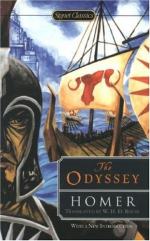It is unfortunate for us, that, of some of the greatest men, we know least, and talk most. Homer, Socrates, and Shakespere have, perhaps, contributed more to the intellectual enlightenment of mankind than any other three writers who could be named, and yet the history of all three has given rise to a boundless ocean of discussion, which has left us little save the option of choosing which theory or theories we will follow. The personality of Shakespere is, perhaps, the only thing in which critics will allow us to believe without controversy; but upon everything else, even down to the authorship of plays, there is more or less of doubt and uncertainty. Of Socrates we know as little as the contradictions of Plato and Xenophon will allow us to know. He was one of the dramatis personae in two dramas as unlike in principles as in style. He appears as the enunciator of opinions as different in their tone as those of the writers who have handed them down. When we have read Plato or Xenophon, we think we know something of Socrates; when we have fairly read and examined both, we feel convinced that we are something worse than ignorant.
It has been an easy, and a popular expedient of late years, to deny the personal or real existence of men and things whose life and condition were too much for our belief. This system—which has often comforted the religious sceptic, and substituted the consolations of Strauss for those of the New Testament—has been of incalculable value to the historical theorists of the last and present centuries. To question the existence of Alexander the Great, would be a more excusable act, than to believe in that of Romulus. To deny a fact related in Herodotus, because it is inconsistent with a theory developed from an Assyrian inscription which no two scholars read in the same way, is more pardonable, than to believe in the good-natured old king whom the elegant pen of Florian has idealized—Numa Pompilius.
Scepticism has attained its culminating point with respect to Homer, and the state of our Homeric knowledge may be described as a free permission to believe any theory, provided we throw overboard all written tradition, concerning the author or authors of the Iliad and Odyssey. What few authorities exist on the subject, are summarily dismissed, although the arguments appear to run in a circle. “This cannot be true, because it is not true; and that is not true, because it cannot be true.” Such seems to be the style, in which testimony upon testimony, statement upon statement, is consigned to denial and oblivion.
It is, however, unfortunate that the professed biographies of Homer are partly forgeries, partly freaks of ingenuity and imagination, in which truth is the requisite most wanting. Before taking a brief review of the Homeric theory in its present conditions, some notice must be taken of the treatise on the Life of Homer which has been attributed to Herodotus.




